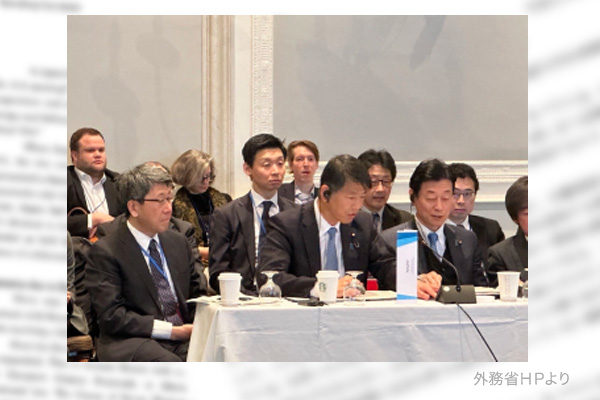An agreement to strengthen supply chains for important materials has been reached at a ministerial meeting of the 14-nation Indo-Pacific Economic Framework (IPEF) including Japan, the United States, South Korea, Australia, India and Southeast Asian countries. IPEF is strategically important for leading the U.S. to commit itself to Asia with a rising China in mind, as I reiterated since the framework’s inception. IPEF is also a test for whether Western countries can win over emerging and developing countries called the Global South.
Meaning of the agreement to strengthen supply chains
However, Asian IPEF members are reluctant to demonstrate confrontation with China. Practical economic benefits are the key for IPEF to win over these countries as far as the U.S. has excluded trade liberalization through tariff cuts from IPEF agendas.
Of the four areas for IPEF negotiations, the strengthening of supply chains has been expected to become the first candidate to yield practical benefits. The latest agreement calls for considering specific cooperation if any IPEF member requests external help through IPEF communication network when supply of semiconductors, medical materials or any other important materials is disrupted. However, the agreement covers only procedures, leaving uncertain whether cooperation could be materialized.
Japanese media have reported the latest agreement as indicating the IPEF members’ breakaway from dependence on China. This interpretation is not right. Japanese and U.S. views about China differ from those of Asian countries. The text of the agreement falls short of indicating the breakaway from dependence on China. Various factors are expected to cause supply disruptions, including not only China’s economic coercion but also natural disasters and the pandemic. To interpret the agreement as designed to deter China clearly misses the point. While it is important for Western countries to strengthen their commitment to the Global South, we must look squarely at the reality.
Remaining three areas should be difficult to negotiate
The IPEF negotiators have chosen to achieve agreements by stages and to agree first on an area where they can easily agree in order to keep momentum of the negotiation. However, the remaining three areas are expected to be difficult to negotiate.
The trade area among the three is of particular concern. While the U.S. is enthusiastic about rule-making for the 21st century, Asian countries are cold. The U.S. Biden administration is trying to impose tough environmental and labor standards on negotiating partners to appeal to American environmentalists and trade unions. The U.S.-style imposition of rules brings a backlash from Asian countries.
Clean economy as a third area for IPEC negotiations will focus on support for decarbonization in developing countries. However, many Asian countries have no choice but to depend on fossil fuels for the time being and it is impossible for them to radically switch to renewable energy as the Europeans and the U.S. do. Asian countries appreciate Japan’s approach of supporting realistic responses while utilizing ammonia and hydrogen. The problem is whether U.S. Special Presidential Envoy for Climate John Kerry, an environmental leftist, will change his mind.
Given that the U.S. will be dominated by presidential election next year, an Asia-Pacific Economic Cooperation (APEC) summit in November this year may be a de facto deadline for IPEF negotiations. Unless the Biden administration modifies its inward-looking attitude and its imposition of American values, IPEF negotiations will come to a deadlock. We must not forget that there is a country that would be pleased to see such situation.
Masahiko Hosokawa is a professor at Meisei University and a former director-general of the Trade Control Department at Japan’s Ministry of Economy, Trade and Industry. He is also a Planning Committee member at the Japan Institute for National Fundamentals.


